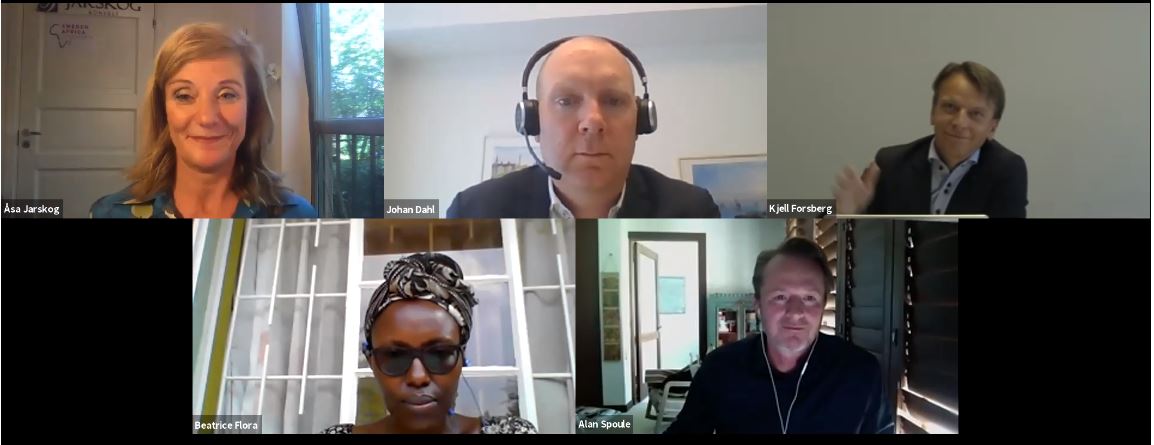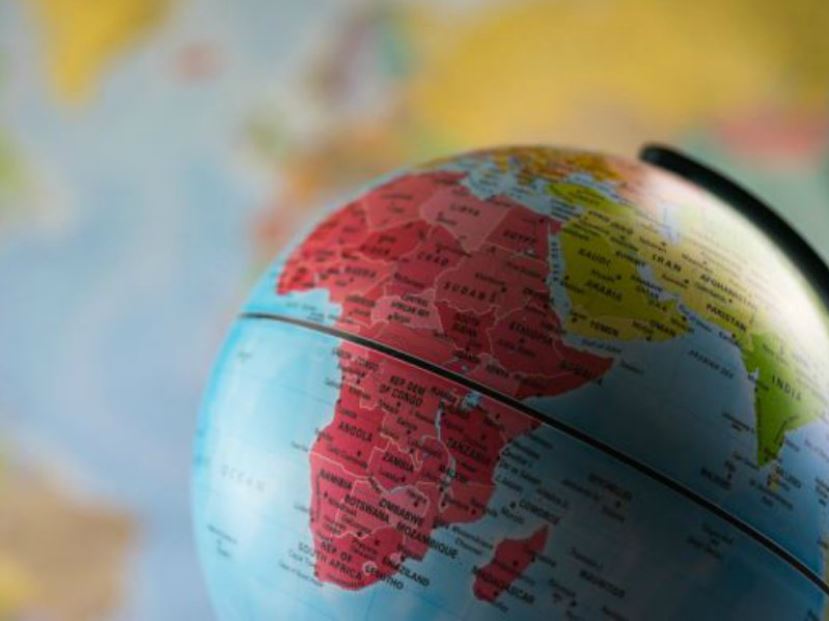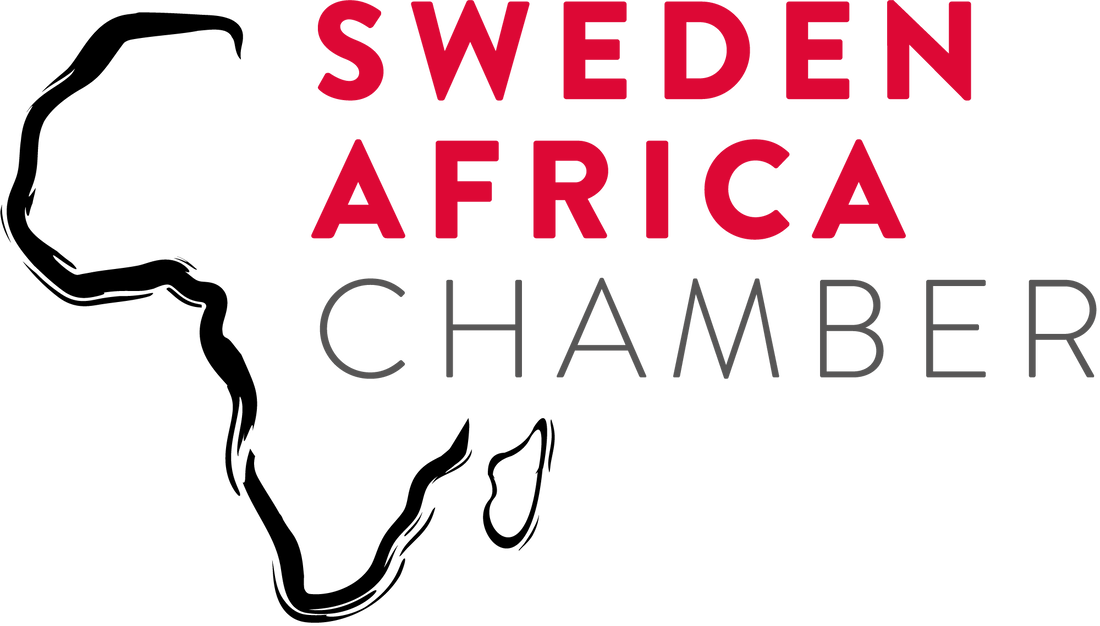|
Covid-19 has put a lot of strain on economies and populations all over the world, and Africa is no exception. At a new webinar Sweden Africa Chamber highlighted some of the challenges this has put on the continent - but also gave advice on how to pursue business in spite of the difficulties. Moderator Åsa Jarskog, president of Sweden Africa Chamber, opened up by asking how we could carry out and finance larger projects in Africa during the corona pandemic. One way forward is to run projects as large-scale PPP's, or Public Private Partnerships. The first speaker Beatrice Flora Ikilai elaborated on this from her role as Co-President of the newly formed Africa PPP Network (AP3N).
AP3N is a network of PPP units and practitioners across Africa, and has regional representation in North, East, West, Central and Southern Africa. It was originally established to address some of the continent's pressing infrastructure development needs, by discussing financing solutions and joint project setups. - Africa has an infrastructure gap of between 130 and 160 billion dollars, said Ikilai, who has also worked extensively with PPP's at the Ministry of Finance in Uganda. Ikilai pointed to some of the assessments by global institutions and expert bodies, projecting negative growth outlooks for Africa from -1,6 % down to -5,1 %. The situation is exacerbated by that many of the African countries' governments have exhausted their borrowing capacity, that not enough taxes are coming in and that donor countries are also battling corona at home. However, the crisis also offers opportunities for new and strengthened development initiatives. Beatrice Ikilai suggested that foreign investors specifically look to e.g. healthcare infrastructure and services, ICT development and agro-processing. - But you need to go in and do a different kind of risk management framework for projects under covid-19. And of course this is an opportunity for investors from outside, said Ikilai. The next speaker was Alan Sproule, Executive Director Project Finance with Standard Chartered Bank - which, told Sproule, "has been in many African countries for over 100 years". The bank has also been voted the "Best Global Export Finance Bank" by the Global Trade Review. Sproule concurred with Ikilai in her statements about the economic difficulties that the African governments face under covid-19, including obstacles to further borrowing and to financing of much-needed infrastructure projects across the continent. At the same time, 44 billion dollars is anticipated in debt relief for the continent in 2020 alone. A heavy debt burden is however not new for Africa. To address this, whether during the corona pandemic or in normal times, Sproule and others have found PPP's to be a promising solution. - PPP's are a risk-sharing mechanism. What it does is that it allows governments to borrow off balance sheet, so it frees up certain capacities. But it does create contingent liabilities for governments, so it is not a "magic bullet". Nevertheless, it is at least something that the government doesn't have to budget for at an annual basis, said Sproule. User-paid toll roads and bridges, ports and terminals and even railroads, are all examples of projects that work well under PPP financing, as do availability-based power generation and transmission projects. Internal rate of return on African PPP's are typically between 15 and 18 percent. - African governments has also done a lot of work: the environment is investor-friendly, there is certainty about contracts and there are project finance structures that allow sufficient liquidity to come in to be able to finance these projects, added Alan Sproule. The final speakers were Kjell Forsberg, Deputy Director Large Corporates, and Johan Dahl, Country Policy Advisor, both with the Swedish Export Credit Agency (EKN). Kjell Forsberg begun by explaining how EKN had a good year in 2019, issuing guarantees to some 54,2 billion SEK and carrying out transactions in 140 countries. - What happened now with covid-19 was that we had to introduce a few new products to cope with the situation, but what we also realized was that we have the same number of transactions as we normally do. And that is also good, because it means that the underlying export is actually happening, explained Kjell Forsberg. The new products that Forsberg talked about include improved access to working capital credits for small and medium-sized enterprises, a new working capital credit guarantee for large companies (otherwise not allowed since it would be seen as state aid), and a guarantee for short-term credits to high-income countries (which normally the market should handle). Especially the guarantee for large companies has turned out to be in high demand. - We launched it on a Monday, we had the first application at our desk on Tuesday, and we had the first approval one week later. We now have 60 applications within this, totalling more than 180 billion Swedish kronor - and that's only since basically the 23rd of March, said Kjell Forsberg. EKN now also offers services in retail, shipping and tourism, apart from the traditional export sectors. Forsberg's presentation was followed by a deep-dive into the African region by Johan Dahl, EKN, who pointed out a number of countries where EKN has recently downgraded the risk ratings and where EKN's services are in high demand. Downgraded countries include Angola, in category 7, and South Africa, in category 5. - But I would like to stress that even if the risks are high, we will rather downgrade and keep open for cover than close entirely for guarantees, said Johan Dahl. Dahl summoned up by informing that EKN also has a facility for limited guarantees in very difficult countries, to a slightly higher premium. Comments are closed.
|
Archives
December 2023
|


 RSS Feed
RSS Feed

